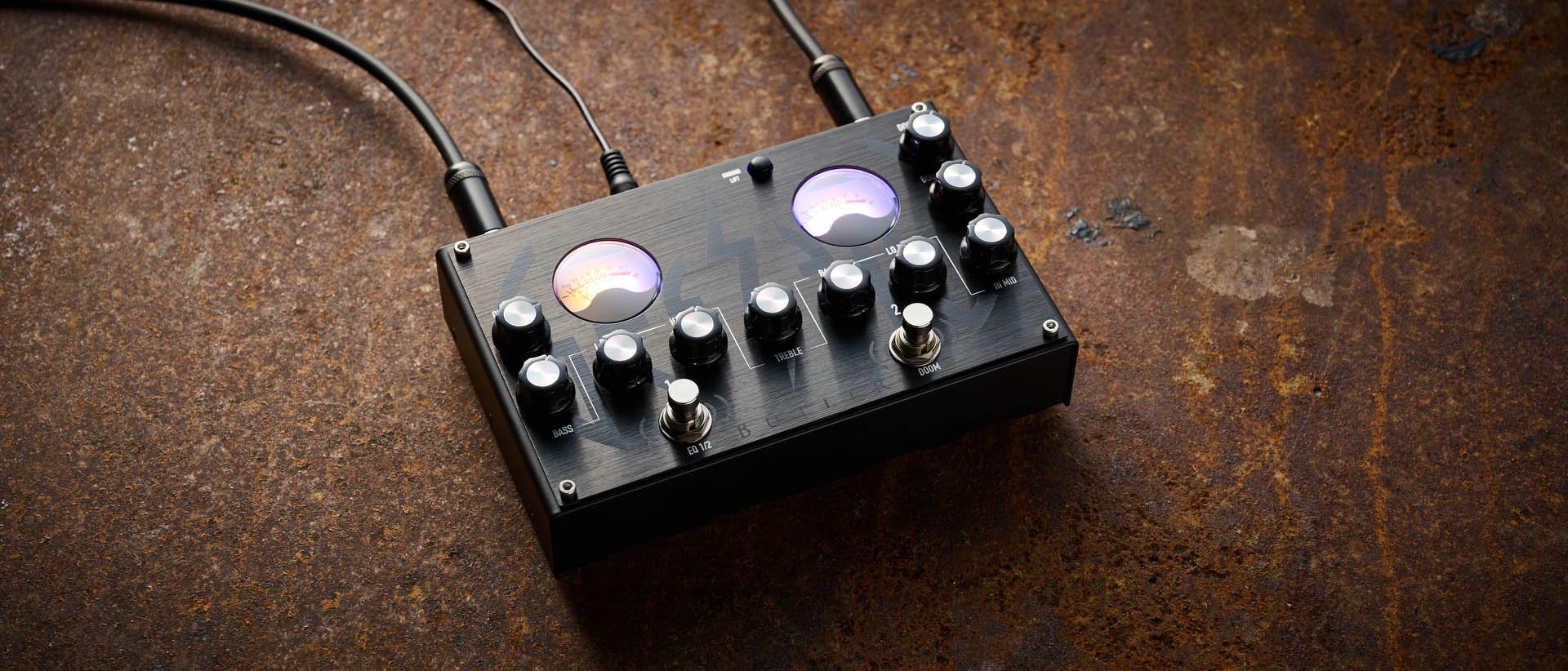“The guitar I play live is secretly a Squier. I replaced the neck plate – I was like, ‘I’m too big for this!’” How Frankensteined Fenders and vintage Gibsons supercharged the rise of Jack White-backed rockers Die Spitz
With a yin and yang guitar partnership, rarebreed pedals and a DIY attitude, the Texans’ blend of metal, punk and shoegaze is the latest addition to Third Man Records’ roster

After bowling Jack White over with their patchwork blend of classic metal, ravenous punk, gritty indie and shoegaze, Die Spitz have risen fast. The Austin, Texas quartet formed when Ava Schrobilgen and Eleanor Livingston turned to the electric guitar to scratch creative itches during the pandemic.
A slew of singles, SXSW appearances and a spot in Audiotree's famed live room came after 2022 EP The Revenge of Evangeline. That convinced White to sign them to his diversified Third Man Records. They say he let the band “do whatever the fuck we wanted” as they created debut album Something to Consume.
Livingston worships at the altar of Tony Iommi and Randy Rhoads, arming herself with vintage Gibsons. Meanwhile, Schrobligen looks to Kurt Cobain and the Pixies, channelling them through Frankensteined Fenders. It’s a perfect blend for a band that mixes and matches styles and tones with free and authentic abandon. No wonder Jack White is hooked.
You both have very different approaches to the guitar. How would you describe your partnership?
Eleanor Livingston: “I think it’s pretty natural. Ava has all the capabilities to play everything I play and write everything I write, but she’s such a good rhythm guitar player. It just fell in line that way. There's a distinct sound to our guitars and they add together, but we never really talk about it.”
Ava Schrobilgen: “I think we learn from each other. I've been going through some of the songs on lead guitar, which is scary but fun. We’re kind of like sisters – we’ve been friends since we were three years old. It’s not like I have to be better than her.”
What are your main guitars?
All the latest guitar news, interviews, lessons, reviews, deals and more, direct to your inbox!
Livingston: “I play a 1969 reissue Gibson SG because of Tony Iommi. I’m a big Gibson girl. I started playing on my dad’s 1960 reissue Les Paul. That's a really good blues guitar, but I tried to gig with it and it was so heavy. I can’t throw a $3,000 guitar around – that’s not what it’s meant for.”
Schrobilgen: “I really like Frankensteined Fenders. My main guitar is a Jaguar neck on a Squier Jazzmaster body with a Strat bridge. I think it sounds great. I love real Fenders too, but I can never find one that’s perfect out of the box. I love the creativity of the parts guitars, and the unique sounds you can get.

“I’m working on one with a Jazzmaster neck, a homemade Jazzmaster/Jaguar body and Strat pickups. It has this random empty space in the body. I could put a fuzz pedal in there, which would be super-sick – or hide drugs in there!”
Squiers often get a bad rep.
Livingston: “I think Squiers sound great; they get a bad rep because they're cheap. The guitar I play at every show is secretly a Squier. I replaced the neck plate on the back so that it doesn’t say ‘Squier.’ I was like, ‘I’m too big for this!’”
Eleanor, your Iommi influence is clear with your solos. They’re brilliantly scrappy.
Livingston: “With some of our songs, I don’t know if a polished sound would sound good. I like to stick in the same boxes and do what best serves the song. The Throw Yourself to the Sword solo is nothing crazy – it’s just playing along to the riff and dropping things in, but it sounds good to me.
“I’d like to get faster, though. I’ll never get this good, but I love Randy Rhoads’ Diary of a Madman solos.”
What are the secret weapons of tone on the album?
Schrobilgen: “Our producer, Will Yip, had the original green Sovtek Russian Big Muff with the bubble font and the reverse input/output. It sounds so damn good – you cannot get that tone from anything else.
“It’s on a lot of the record. We put it on the bass for some songs, too – it sounds incredible. It sucks because we can’t get that tone without one of those pedals. And they're really expensive.”
What’s on your pedalboards?
Schrobilgen: “Mine is made from plywood. I sawed and sanded it myself, and I wrote ‘Cheap Tones’ on it so people know I love cheap tones! I have the reissue green Big Muff – it’s not as good, but it still gets there – the Boss DS-1, a Walrus Audio Fundamental Reverb, a Boss tuner, and the Way Huge Fat Sandwich. It’s actually from the band The Sword; our attorney gave it to me, which is pretty cool!”
Livingston: “Mine is a pretty classic pedalboard. I really love the MXR Carbon Copy delay; it makes every solo sound really good. The Big Muff is a classic, and I got gifted a Ronsound Hairpie sustain pedal at a show. I fuck with that!”
Have you blagged any Third Man pedals?
Schrobilgen: “Not yet! When we were in London In July, we went to the Third Man store basement and played around with pedals. There's a really funny one that sounds like a bee [the Bumble Buzz]. It was so sick.”

What’s it like having Jack White’s backing?
Schrobilgen: “Third Man is a super-artist-friendly label. They let us do whatever the fuck we want; they’re super-open to everything. That helps us a lot, especially with a debut album. We’re setting the script for the band, and if you go off of that, people are going to get pissed off.
“So being able to make an album with so many different sounds, and to have creative freedom with it, takes a big weight off your chest.”
Livingston: “The first song we ever covered was the White Stripes’ Fell in Love With A Girl. We opened for Jack here in Austin, and we got to watch from the side of the stage. It was fucking insane. Jimmy Page said Jack’s one of the greatest guitar players ever. He’s super-inspiring, unique and creative.”
- Something to Consume is out now.
A freelance writer with a penchant for music that gets weird, Phil is a regular contributor to Prog, Guitar World, and Total Guitar magazines and is especially keen on shining a light on unknown artists. Outside of the journalism realm, you can find him writing angular riffs in progressive metal band, Prognosis, in which he slings an 8-string Strandberg Boden Original, churning that low string through a variety of tunings. He's also a published author and is currently penning his debut novel which chucks fantasy, mythology and humanity into a great big melting pot.
You must confirm your public display name before commenting
Please logout and then login again, you will then be prompted to enter your display name.

